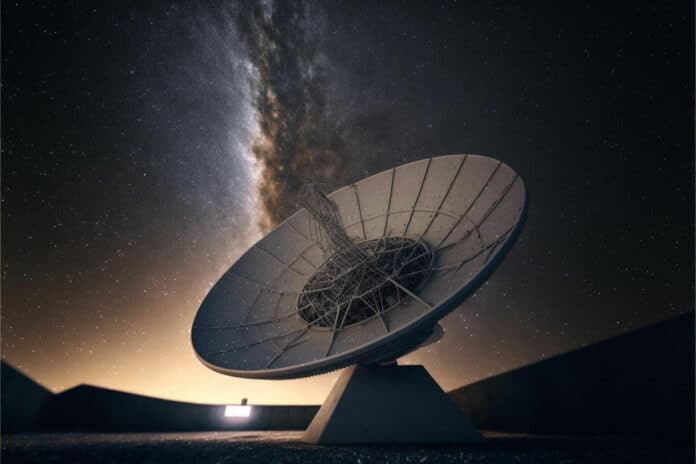The Defence Secretaries of Australia, the United Kingdom, and the United States have announced a new landmark radar initiative. The three nations have collaborated to build an international Deep Space Advanced Radar Capability (DARC) network aimed at enhancing global security by being able to better detect, track, and identify objects in deep space.
The 24/7, all-weather capabilities of the DARC program will enable the AUKUS nations to characterize objects in deep space, up to 22,000 miles (36,000 km) away from the Earth, boosting their ability to detect and deter space-based threats.
The DARC project aims to establish a global network of three ground-based radars that will be jointly operated to aid in space traffic management and contribute to the worldwide surveillance of satellites in deep space. The unique geographic positioning of the three countries enables DARC to offer global coverage, including the identification of potential threats to defense or civilian space systems.
This breakthrough capability will be advantageous to the land, air, and maritime forces of all three nations. It will also protect critical infrastructure and benefit domestic construction and space industries, particularly in light of the growing risk of space warfare.
Along with its defense benefits, DARC has the capability to monitor and protect essential services that rely on satellites in space, such as communications and navigation. This will be crucial in AUKUS’ efforts to preserve peace and deter conflict in the Indo-Pacific and the rest of the world.
The new radar systems are equipped with higher sensitivity, better accuracy, increased capacity, and more agile tracking than the current radars and optical systems used for tracking objects in deep space orbit. As a result, DARC will be able to provide greater global monitoring to inform UK defense operations, bypassing current limitations caused by inclement weather and daylight conditions.
“As the world becomes more contested and the danger of space warfare increases, the UK and our allies must ensure we have the advanced capabilities we need to keep our nations safe,” UK Defence Secretary Grant Shapps said in a statement. “Today’s announcement of a global radar network (DARC) based across the UK, US and Australia will do just that. Empowering the UK to detect, track, and identify objects in deep space.”
The first Deep-space Advanced Radar Capability site will be built in Australia and is expected to be up and running by 2026. All three global radar sites are to be operational by the end of the decade.
The program will create employment during the construction phase and provide up to 100 longer-term jobs, with further opportunities for Australian industry through the operation and sustainment of the site.
